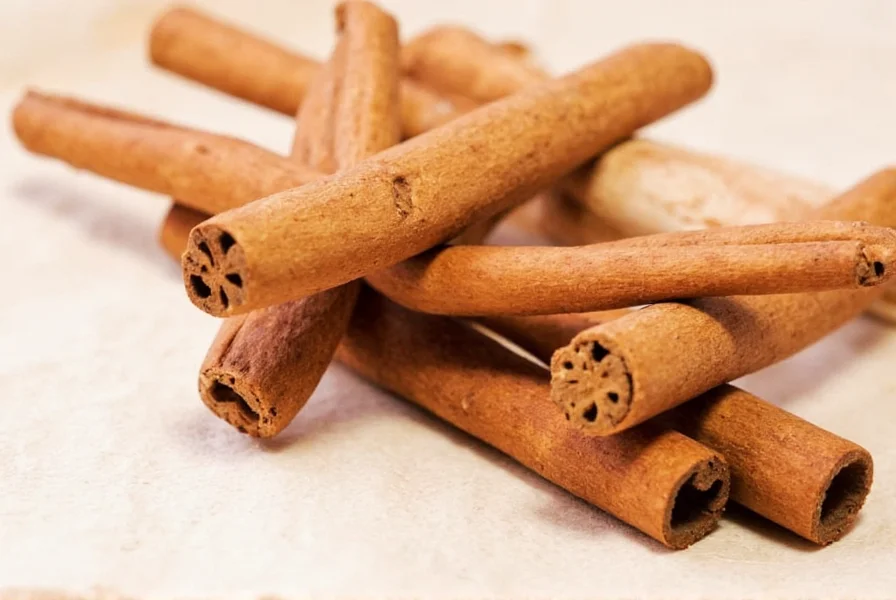Many expecting mothers wonder about the safety of common spices in their diet, and cinnamon frequently tops the list of concerns. As a widely used spice with potential health benefits, understanding cinnamon's role during pregnancy is important for making informed dietary choices.
Understanding Cinnamon Types and Their Differences
Not all cinnamon is created equal when considering safety during pregnancy. The two main varieties you'll encounter are:
| Type of Cinnamon | Coumarin Content | Common Usage |
|---|---|---|
| Ceylon Cinnamon | Very low (0.004-0.016%) | "True" cinnamon, milder flavor, more expensive |
| Cassia Cinnamon | High (2.15-6.97%) | Most common in supermarkets, stronger flavor |
The key difference lies in coumarin content—a natural compound that in high doses may affect liver function and potentially impact pregnancy. Cassia cinnamon, which makes up about 90% of cinnamon sold in the United States, contains significantly higher coumarin levels than Ceylon cinnamon.
Scientific Evidence on Cinnamon Consumption During Pregnancy
Research specifically examining cinnamon's effects during human pregnancy is limited, but we can draw conclusions from related studies and general safety data:
A 2020 review published in the Journal of Dietary Supplements noted that while culinary use of cinnamon appears safe, high-dose supplementation hasn't been adequately studied in pregnant populations. Animal studies have shown potential concerns with very high doses, but these amounts far exceed typical dietary consumption.
The European Food Safety Authority (EFSA) established a tolerable daily intake of coumarin at 0.1 mg per kilogram of body weight. For a 130-pound pregnant woman, this translates to approximately 6-7 mg of coumarin daily. A single teaspoon of cassia cinnamon contains about 5-12 mg of coumarin, while the same amount of Ceylon cinnamon contains less than 0.05 mg.

Recommended Cinnamon Intake During Pregnancy
Based on current evidence, here's what health professionals generally recommend:
- Culinary use: Up to 1 teaspoon of cassia cinnamon or several teaspoons of Ceylon cinnamon daily is considered safe for most pregnant women
- Cinnamon tea: 1-2 cups daily using moderate amounts of cinnamon is generally acceptable
- Supplements: Avoid cinnamon supplements or essential oils during pregnancy without explicit medical approval
Registered dietitian Maria Chen explains: "The occasional cinnamon roll or sprinkle of cinnamon on oatmeal poses no risk to pregnancy. The concerns arise with medicinal doses, cinnamon extract supplements, or consuming multiple teaspoons of cassia cinnamon daily over extended periods."
Potential Benefits of Moderate Cinnamon Consumption
When consumed in appropriate amounts, cinnamon may offer some benefits during pregnancy:
Research in the American Journal of Obstetrics and Gynecology suggests cinnamon's potential role in supporting healthy blood sugar levels, which can be particularly relevant for women with gestational diabetes. Its antioxidant properties may also contribute to overall wellness during pregnancy when used as part of a balanced diet.
However, it's crucial to understand that cinnamon should never replace medical treatment for conditions like gestational diabetes. Always follow your healthcare provider's recommendations for managing pregnancy-related health concerns.
When to Consult Your Healthcare Provider
Certain situations warrant specific discussion with your obstetrician or midwife:
- If you have liver conditions or concerns
- When considering cinnamon supplements for blood sugar management
- If you regularly consume multiple teaspoons of cassia cinnamon daily
- Before using cinnamon essential oils or extracts
- If you experience unusual symptoms after consuming cinnamon
Dr. Sarah Williams, an obstetrician with 15 years of practice, advises: "I tell my patients that normal food use of cinnamon is fine, but if they're considering it for therapeutic purposes during pregnancy, we need to have that conversation first. The dose makes the poison, and what's safe in your morning oatmeal isn't necessarily safe in supplement form."
Practical Tips for Safe Cinnamon Consumption
Here are actionable recommendations for incorporating cinnamon safely during pregnancy:
- Choose Ceylon cinnamon when possible, especially for regular use
- Limited cassia cinnamon to no more than 1/2 teaspoon daily if using regularly
- Avoid cinnamon supplements, extracts, and essential oils
- Read labels on pre-made foods and beverages for hidden cinnamon content
- Monitor your total daily intake if using cinnamon in multiple foods
- Consult your healthcare provider if using cinnamon for specific health concerns
Conclusion
Cinnamon can be a safe and enjoyable part of your pregnancy diet when consumed in typical culinary amounts. The key is understanding the difference between food use and medicinal use, recognizing the variations between cinnamon types, and maintaining appropriate portion sizes. As with any dietary consideration during pregnancy, when in doubt, consult your healthcare provider for personalized advice based on your specific health situation.
Can I drink cinnamon tea while pregnant?
Yes, 1-2 cups of cinnamon tea daily is generally considered safe during pregnancy when made with moderate amounts of cinnamon (about 1/2 teaspoon per cup). Avoid consuming multiple cups daily of strongly brewed cinnamon tea, especially if made with cassia cinnamon, due to coumarin content.
How much cinnamon is too much during pregnancy?
Consuming more than 1 teaspoon of cassia cinnamon daily may exceed recommended coumarin limits for pregnant women. For Ceylon cinnamon, several teaspoons daily is generally considered safe. The concern isn't with occasional culinary use but with regular high-dose consumption or supplements.
Is Ceylon cinnamon safer than cassia cinnamon during pregnancy?
Yes, Ceylon cinnamon contains significantly lower levels of coumarin (less than 0.05mg per teaspoon) compared to cassia cinnamon (5-12mg per teaspoon). For regular consumption during pregnancy, Ceylon cinnamon is the safer choice as it allows for more flexibility in daily intake without exceeding coumarin safety thresholds.
Can cinnamon cause miscarriage in early pregnancy?
No, normal culinary use of cinnamon does not cause miscarriage. This is a common myth with no scientific basis. The amounts of cinnamon typically used in cooking and baking are not associated with pregnancy complications. Concerns only arise with extremely high medicinal doses not found in regular food consumption.
Should I avoid cinnamon if I have gestational diabetes?
No, moderate cinnamon consumption may actually be beneficial for blood sugar management. However, you should discuss this with your healthcare provider as part of your overall treatment plan. Cinnamon should never replace prescribed treatments for gestational diabetes, but normal food use can be part of a balanced diet.











 浙公网安备
33010002000092号
浙公网安备
33010002000092号 浙B2-20120091-4
浙B2-20120091-4